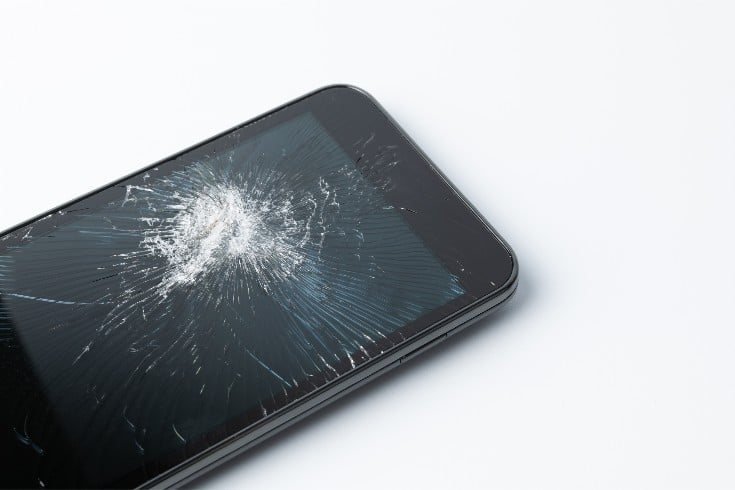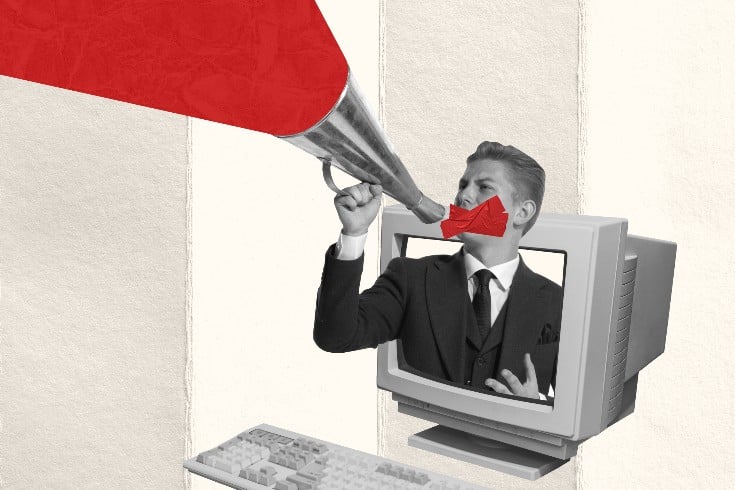About Defamation Charges in Cases of Slander Against Individuals or Companies on YouTube

On YouTube, a variety of videos are posted daily, and there are many types of YouTubers. Often, YouTubers post videos with the aim of gaining more viewers. However, there is a type of YouTubers, known as the outspoken YouTuber, who expresses their beliefs and opinions about others or companies with the aim of attracting viewers.
While some outspoken YouTubers make very rational arguments, there are also inflammatory YouTubers who make extreme statements or defame others to increase their view count.
While YouTubers are free to say what they want, depending on the content of their statements, they may be deemed to be defaming others, companies, or corporations, and there are cases where they may be held legally responsible. Recently, it seems that there has been an increase in the number of people who do not hesitate to attack others, companies, or corporations with their words, such as disrespectful YouTubers who claim to be related to the deceased, or those who persistently defame specific celebrities.
In this article, we will explain the legal responsibilities when defaming others, companies, or corporations on YouTube.
Potential Legal Liabilities
When engaging in defamation against individuals, companies, or corporations, the following legal liabilities may be considered:
- Defamation (Japanese Penal Code Article 230)
- Insult (Japanese Penal Code Article 231)
- Credit Damage Crime / Fraudulent Business Interference (Japanese Penal Code Article 233)
- Liability for Damages Based on Tort (Japanese Civil Code Article 709, Article 710)
Defamation, insult, and fraudulent business interference/credit damage crimes carry criminal liability, while torts carry civil liability.
About Defamation
Firstly, let’s discuss defamation. Article 230, Paragraph 1 of the Japanese Penal Code stipulates the following:
(Defamation)
Japanese Penal Code Article 230, Paragraph 1
Article 230: (1) A person who defames another person by making allegations in public, regardless of whether such facts are true or false, is punished by imprisonment or imprisonment without work for not more than 3 years or a fine of not more than 500,000 yen.
(2) A person who defames a dead person is not punished unless such defamation is based on false facts.
As stated above, defamation is defined in Paragraphs 1 and 2.
About Article 230, Paragraph 1 of the Penal Code
Firstly, for Paragraph 1 to be established, the following requirements must be met:
- “Publicly”
- “Indicating a fact”
- “Defaming the reputation of a person”
Firstly, 1. “Publicly” refers to a situation where an unspecified or large number of people can recognize the indicated information.
In the case of YouTube, if a video is made public, it is naturally possible for an unspecified or large number of people to view the video, so it is considered to meet the first requirement.
Next, 2. “Indicating a fact” refers to indicating a fact that could lower a person’s social evaluation by means such as verbal, written, or pictorial methods.
On YouTube, if defamation is committed, it is considered that the content of the defamation would include something that could lower a person’s social evaluation, and indicating it through a video is also considered to be included in “indicating”, so it is considered that many cases meet the second requirement.
And in order to 3. “defame the reputation of a person”, it is considered sufficient to indicate a fact that could abstractly lower the social evaluation of another person, even if the reputation of another person or a company/corporation is not specifically defamed.
As such, for videos posted on YouTube that defame other individuals or companies/corporations, if they meet the above requirements 1 to 3, there is a possibility that defamation could be established.
Even if the requirements for defamation are met, it may not be a crime
Even if the requirements for defamation under Article 230, Paragraph 1 of the Penal Code are met, if it falls under the following Article 230, Paragraph 2 of the Penal Code, it will not be punished for defamation.
(Special case for matters of public interest)
Japanese Penal Code Article 230-2
Article 230-2:
1. When an act prescribed under paragraph 1 of the preceding Article is found to relate to matters of public interest and to have been conducted solely for the benefit of the public, the truth or falsity of the alleged facts are to be examined, and punishment is not imposed if they are proven to be true.
2. In application of the preceding paragraph, matters concerning the criminal act of a person who has not been prosecuted is deemed to be matters of public interest.
3. When the act prescribed under paragraph 1 of the preceding Article is made with regard to matters concerning a public employee or a candidate for election, punishment is not imposed if an inquiry into the truth or falsity of the alleged facts are made and they are proven to be true.
In other words, if the defamation on YouTube is related to public interest, if the main purpose of the video posting is to serve the public interest, and if the content of the video is true, it will not be punished for defamation.
About Article 230, Paragraph 2 of the Penal Code
Next, regarding Paragraph 2, the object is a “dead person”.
In order for Paragraph 2 to be established, unlike Paragraph 1, it is not enough to just indicate a fact, it is necessary to indicate a “false fact”.
Also, it is necessary for the perpetrator to recognize that it is false.
Even on YouTube, if a video defaming a deceased person is posted, if the content of the video is true, defamation will not be established.
However, even if defamation is not established when defaming a deceased person, you will be exposed to social criticism in practice, so it is not recommended to post such videos on YouTube.
About the Crime of Insult

The crime of insult is defined in Article 231 of the Japanese Penal Code as follows:
(Insult)
Japanese Penal Code Article 231
Article 231: A person who insults another person in public, irrespective of whether the accusation alleges facts or not, the person is punished by penal detention or a petty fine.
Unlike the crime of defamation, the crime of insult can be established even without stating any facts.
The term “insult” refers to expressing an abstract judgment that disdains others socially.
For example, if you defame or insult individuals, companies, or corporations on YouTube without stating any facts, you may be guilty of the crime of insult.
Defamation and Insult are Crimes Subject to Complaint
Defamation and insult are crimes subject to complaint.
A crime subject to complaint refers to a crime where “a public prosecution cannot be initiated without a complaint” (Japanese Penal Code Article 232).
Therefore, simply posting a video on YouTube that defames or insults others does not immediately establish the crimes of defamation or insult. It is only when there is a complaint from the victim or the like that the possibility of being punished as a crime is recognized.
Therefore, even if you post a video on YouTube that defames or insults others, if you sincerely apologize to the person in question or take other appropriate actions, there is a possibility that you can avoid legal responsibility.
About the Crimes of Damage to Credibility and Obstruction of Business by Fraud
The crimes of damage to credibility and obstruction of business by fraud are defined in Article 233 of the Japanese Penal Code as follows:
(Damage to Credibility; Obstruction of Business)
Japanese Penal Code Article 233
Article 233: A person who damages the credibility or obstructs the business of another person by spreading false rumors or by the use of fraudulent means is punished by imprisonment for not more than 3 years or a fine of not more than 500,000 yen.
About the Crime of Damage to Credibility
Firstly, “a person’s reputation” refers not to general reputation, but to a person’s reputation in economic terms.
Specifically, it refers to the reputation regarding a person’s ability or intention to pay.
Next, “spreading false rumors” refers to disseminating rumors or information that contradicts objective facts to an unspecified or large number of people.
Also, “using deception” refers to taking advantage of another person’s ignorance or misunderstanding.
And “defamation” refers to the potential to lower a person’s economic reputation.
If you post a video on YouTube that slanders others, and the content of the video pertains to the economic reputation of others, companies, or corporations, there is a possibility that the crime of defamation may be established.
About the Crime of Obstruction of Business
The crime of obstruction of business is defined in the same article as the crime of damage to credibility, so there are overlapping elements in their composition.
Therefore, the following will explain the elements that do not overlap.
Firstly, “business” refers to tasks or operations that are continuously performed based on one’s profession or other social status.
For example, suppose you post a video on YouTube that slanders a specific restaurant. If viewers who saw the video start making complaint calls to the restaurant or causing trouble, and the restaurant becomes unable to operate, there is a possibility that the crime of obstruction of business may be established.
Also, if you post a video on YouTube stating that a specific company is a “black company” despite there being no such fact, and the company becomes unable to carry out its normal operations due to a flood of complaints from viewers who saw the video, such an act may also constitute obstruction of business.
About Liability for Damages Based on Torts
The defamation crime (Japanese Penal Code Article 230), insult crime (Japanese Penal Code Article 231), and credit defamation crime / fraudulent business obstruction crime (Japanese Penal Code Article 233) we have introduced so far were criminal responsibilities, but the liability for damages based on unlawful acts is a civil responsibility.
First, the obligation to compensate for damages based on torts is stipulated in Articles 709 and 710 of the Japanese Civil Code as follows:
(Compensation for Loss or Damage in Torts)
Japanese Civil Code Articles 709 and 710
Article 709: A person that has intentionally or negligently infringed the rights or legally protected interests of another person is liable to compensate for damage resulting in consequence.
(Compensation for Loss or Damage Other than of Property)
Article 710: A person liable for compensation for loss or damage pursuant to the provisions of the preceding Article must also compensate for loss or damage other than of property, regardless of whether that person infringed the body, liberty or reputation of another person, or infringed property rights of another person.
Liability for damages based on unlawful acts, simply put, refers to the responsibility to compensate for damages when one intentionally or negligently infringes on the rights of another person or interests protected by law, causing damage to the other person.
If you post a video on YouTube that defames a specific individual, there is a possibility that you may be sued for damages by the victim of the defamation on the grounds that the act is unlawful.
As for the amount of damages, it is case-by-case, but if it is judged to be malicious defamation, there is a possibility that the amount of damages may be high.
Summary
We have explained the legal responsibilities when defaming others, companies, or corporations on YouTube.
Even though we refer to it as legal responsibility, there are various types of legal responsibilities such as criminal and civil liabilities. If you are considering becoming a YouTuber who speaks out, it is advisable to make videos that express your thoughts in the form of considerations and opinions, rather than defaming others.
Videos that defame others, companies, or corporations may go viral and temporarily increase the number of views, but they may also be subject to legal responsibility. In addition, you may be bashed by the public and become the target of social sanctions. Even if you can increase the number of views, there is a possibility that your account may be suspended or deleted, so posting videos that defame others, companies, or corporations can be said to be a very risky act.
The judgment of legal responsibility for defaming others, companies, or corporations on YouTube requires legal knowledge and professional judgment, so if you are considering becoming a YouTuber who speaks out, or if you have been defamed by others on YouTube, please consult a law firm once.
Category: Internet





















